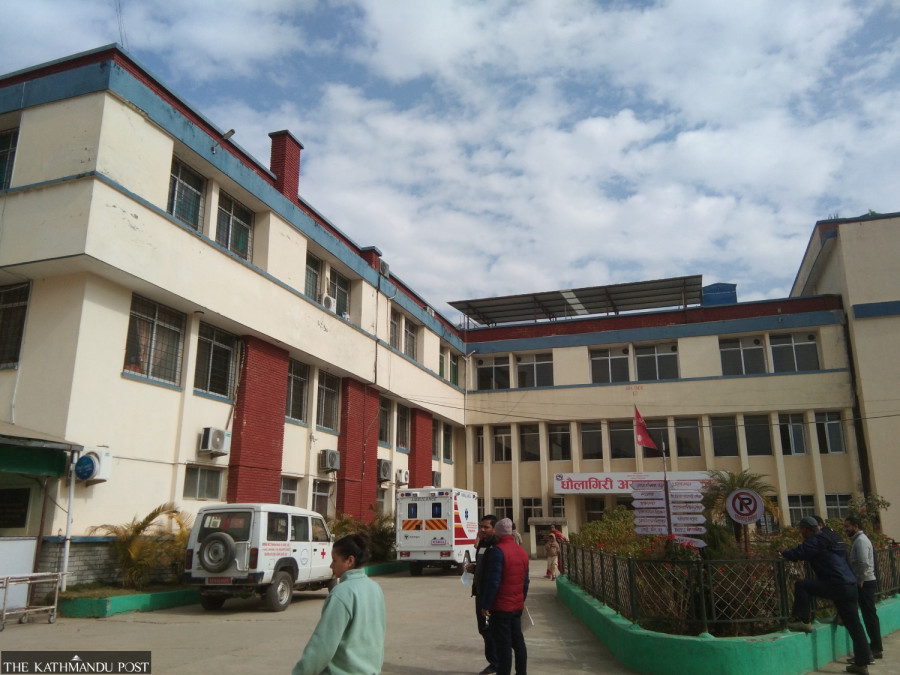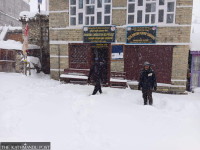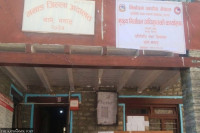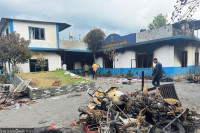Gandaki Province
Services at Dhaulagiri Hospital affected by lack of specialist doctors
People from several surrounding districts have been deprived of even basic maternity services at the hospital as it has been without a gynaecologist for over a month now.
Prakash Baral
Saru Paudel, 27, of Baglung Municipality’s ward 2, gave birth to a baby boy on January 12. Throughout her pregnancy, she had consulted a specialist doctor at Dhaulagiri Hospital, a 100-metre distance from her house. But for her delivery, she had to be rushed to Gandaki Medical College in Pokhara, 72km from her village.
Dhaulagiri Hospital, previously the district hospital, was upgraded into a ‘specialist hospital’ in 2010. There are 16 posts of specialists and at least 10 posts of medical officers at the hospital. But there are only two specialist doctors and three medical officers currently working.
There are 200 general beds in the hospital but currently, only 50 are in operation. More than 400 patients visit the facility daily, according to hospital administration.
Kalpana Kisan of Baglung ward 3 was also referred to a hospital in Pokhara for her delivery by Dhaulagiri Hospital in the absence of specialist doctors to oversee her delivery. “They said I need a C-section but doctors at the Pokhara hospital advised normal delivery. I could’ve delivered even at Dhaulagiri Hospital but the health workers referred me to Pokhara,” she said.
Local residents have been deprived of even basic maternity services at the hospital since the hospital has been without a gynaecologist for the past one and a half months. Pregnant women, therefore, have no choice but to travel to Pokhara for delivery.
The only gynaecologist who was deployed at the hospital, Dr Ngima Yanjin Sherpa, was transferred before her contract expired. Sherpa’s contract at the hospital was set to run from mid-December 2021 to mid-December 2023, but she left her post in mid-December 2022.
In the last fiscal year, 1,187 people received safe delivery services at the hospital, and among them, 536 had to go through major operations. In the current fiscal year, 535 women have taken services so far.
Since the departure of the only gynaecologist from the hospital, all surgery cases, including pregnancy cases, have completely stopped. These days the health team at the hospital refer all pregnancy cases to Pokhara hospitals even for normal delivery.
The absence of doctors has affected the Obstetrics and Gynecology services badly, says Devi Bhattarai, the hospital’s senior nurse. “Whenever patients come here for delivery, we do everything we can to help them, but most pregnancy cases are complicated and need a specialist’s treatment,” she said. “So it’s safe to refer pregnant women to well-equipped hospitals with specialists who can handle both minor and major complications.”
According to her, specialist doctors deployed to Dhaulagiri Hospital do not complete their tenure and leave mid-term. “They stay for some time after the Ministry of Health and Population sends them here but they soon start finding alternatives and loopholes in their contract and leave,” she said.
According to Medical Superintendent and Anesthesiologist Dr Amit Dhungana, there are 10 skilled maternity nurses in the hospital but they are not trained to handle complicated deliveries without a doctor’s assistance.
“We have a shortage not only of obstetricians and gynaecologists but also of paediatricians, general practitioners, consultant surgeons, consultant orthopaedics, radiologists and Ear, Nose and Throat specialists,” said Dhungana. “All services at the hospital have been affected. Even though doctors who have studied on government scholarships must complete their two-year term at their assigned hospitals, most doctors do not abide by their contracts. They prefer to work in urban areas, so they are always in a hurry to leave.”
Every year over 200 students, selected through highly competitive screening tests, get the opportunity to study for the MBBS degree on full scholarship. In return, they need to serve in rural Nepal for two years. However, many of them do not fulfil this requirement and either move abroad or work in other cities.
The poor retainment rate at Dhaulagiri Hospital can also be attributed to the government’s move to remove Baglung from the list of ‘remote districts’ last year, through an amendment in the health regulation in the province, which in effect has created a vacuum in the health sector, according to Tej Prasad Neure, information officer of the hospital.
Of the 11 districts in Gandaki Province, Mustang, Manang, Parbat, Myagdi and Lamjung are enlisted as remote districts.
The ministry has not been able to fill the posts of doctors in the hospital ever since it was upgraded to a specialist hospital, Neure added.
According to Laxmi Devi GC, member of the management committee of the hospital, Dhungana, an anesthesiologist, and Dr Abhishek Wagle, a general physician, are the only two specialist doctors currently working at the hospital.
“The Ministry of Health and Population has not been able to fill the posts of doctors here, and even the doctors they send stay only for a couple of months,” GC said. “Some have stayed for more than six months, but none have lasted a full year let alone their mandated two-year term.”




 9.7°C Kathmandu
9.7°C Kathmandu.jpg)











